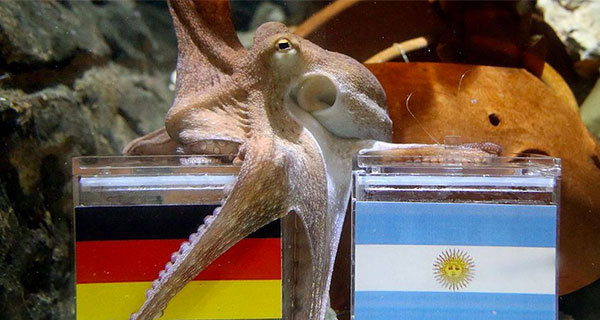There’s a common thread to the dubious claims and irreproducible results that have plagued some fields of science. In most of these cases, scientists saw illusory patterns in the randomness of our world. It’s the same error that led people to be captivated by an octopus named Paul who, in 2010, correctly predicted the outcomes of eight German World Cup matches.
It might seem surprising that a cephalopod could make so many predictions from mere random guesses. But as statistician David Hand explains in his book “The Improbability Principle,” if enough people ask enough animals to predict the outcomes of enough sporting events, eventually it is likely that some will guess correctly a few times in a row.


